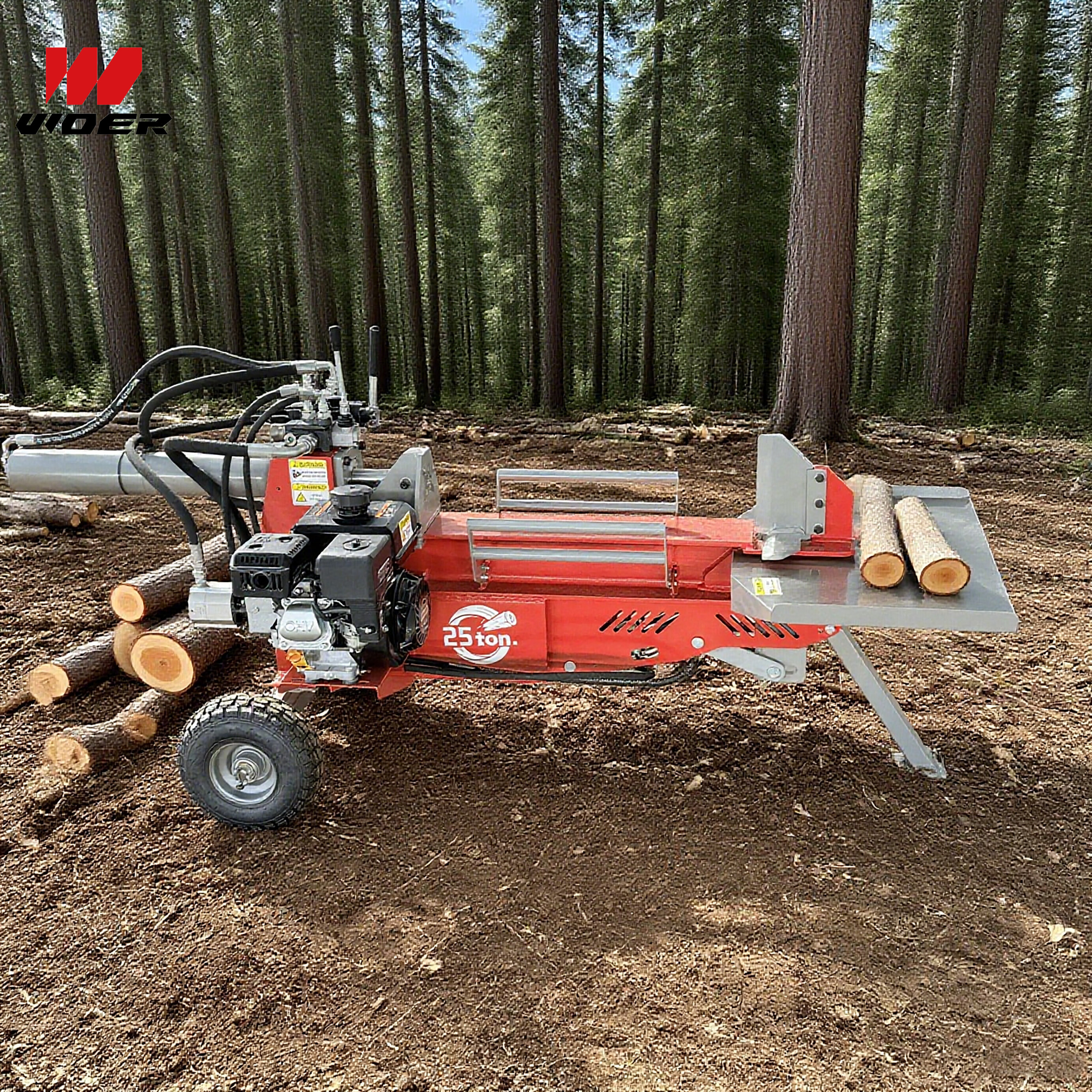Navigation
Contact us
Phone
Message

How to Choose the Right Wood Splitter for Your Needs
Q1: What factors should I consider when choosing awood splitter?
A1: Key factors include log size, wood type, workload frequency, available power source, and budget. Each element helps determine whether you need a manual, electric, or hydraulic splitter.
Q2: How does log size affect the choice of wood splitter?
A2: Smaller logs (under 10 inches in diameter) can be handled by manual or electric splitters. Larger logs (over 12–15 inches) typically require a hydraulic splitter with higher tonnage capacity.
Q3: Why is wood type important when selecting a splitter?
A3: Softwoods like pine or spruce are easier to split and may only require a low-power splitter, while hardwoods such as oak or eucalyptus need hydraulic splitters with greater force.
Q4: How should workload frequency influence my decision?
A4: For occasional or seasonal use, a manual or compact electric splitter is sufficient. For regular or commercial-scale splitting, a hydraulic model is more efficient and durable.
Q5: What role does the power source play in choosing a wood splitter?
A5: Electric splitters are ideal for homes and small farms with access to electricity. Hydraulic splitters are best for heavy-duty outdoor or forestry use. Manual splitters suit users without power supply or with minimal splitting needs.
Q6: How do budget and cost factor into the choice?
A6: Manual splitters are the most affordable with low maintenance costs. Electric splitters offer a balance between cost and efficiency. Hydraulic splitters are more expensive but provide higher performance and long-term value for commercial users.
Q7: Which wood splitter is best for small farms or households?
A7: Electric wood splitters are often the best choice for households and small farms due to their quiet operation, low maintenance, and ease of use.
Q8: Which splitter type is recommended for commercial or forestry applications?
A8: Hydraulic splitters are the top choice for professional use, as they can handle large volumes of hardwood efficiently and operate continuously in demanding environments.
Q9: How do portability and storage affect my selection?
A9: If you need to move the splitter around frequently, a lightweight electric or manual splitter is more practical. Heavy-duty hydraulic splitters usually require more storage space and transport capacity.
Q10: What’s the best overall way to select the right splitter?
A10: Match your wood type, workload, and budget with the right power source and tonnage. Always prioritize safety, efficiency, and long-term durability when making your choice.

This stunning beach house property is a true oasis, nestled in a serene coastal community with direct access to the beach.
Contact
West Street, Melbourne Victoria 3000 Australia